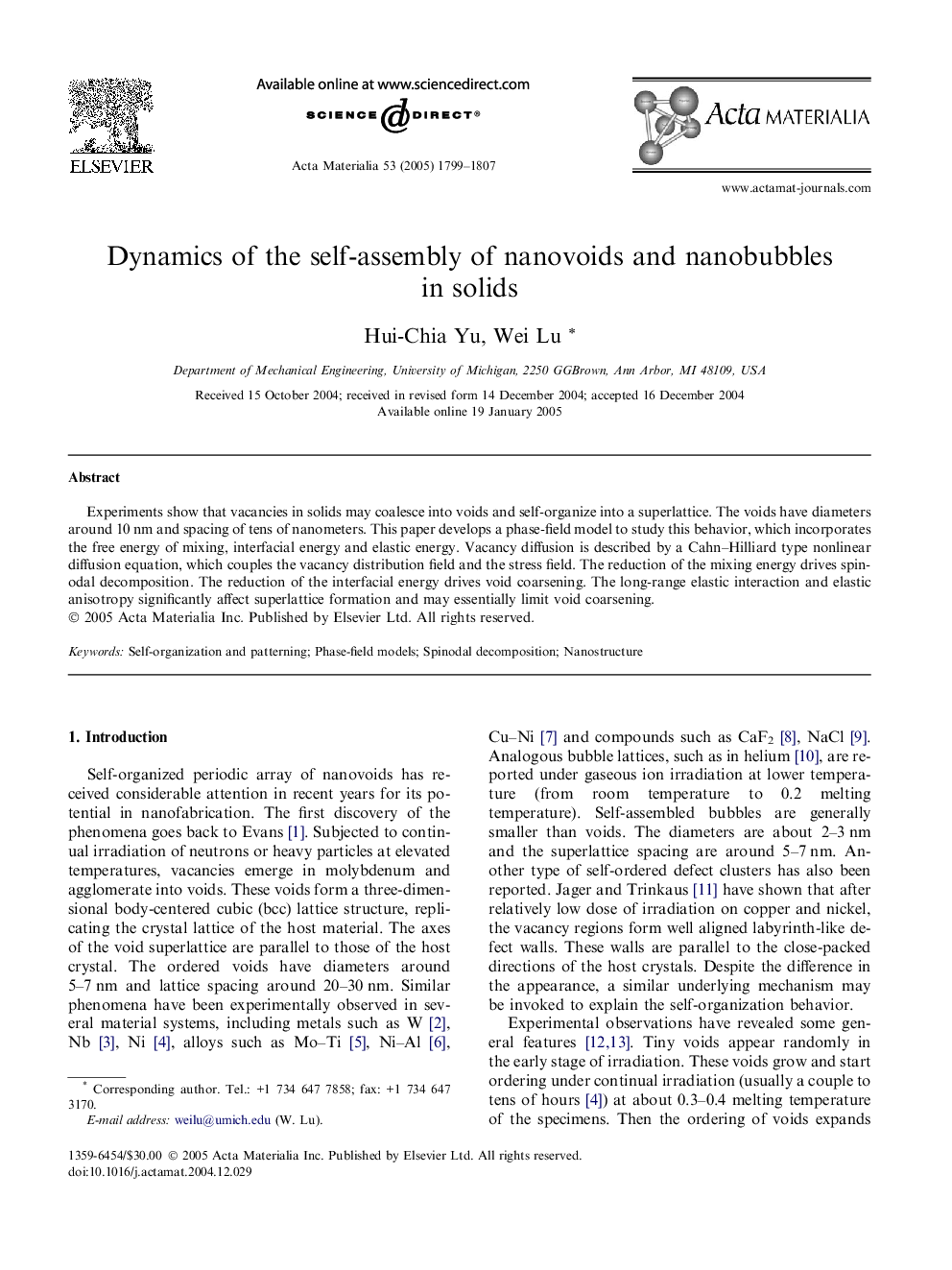| Article ID | Journal | Published Year | Pages | File Type |
|---|---|---|---|---|
| 10621124 | Acta Materialia | 2005 | 9 Pages |
Abstract
Experiments show that vacancies in solids may coalesce into voids and self-organize into a superlattice. The voids have diameters around 10Â nm and spacing of tens of nanometers. This paper develops a phase-field model to study this behavior, which incorporates the free energy of mixing, interfacial energy and elastic energy. Vacancy diffusion is described by a Cahn-Hilliard type nonlinear diffusion equation, which couples the vacancy distribution field and the stress field. The reduction of the mixing energy drives spinodal decomposition. The reduction of the interfacial energy drives void coarsening. The long-range elastic interaction and elastic anisotropy significantly affect superlattice formation and may essentially limit void coarsening.
Related Topics
Physical Sciences and Engineering
Materials Science
Ceramics and Composites
Authors
Hui-Chia Yu, Wei Lu,
